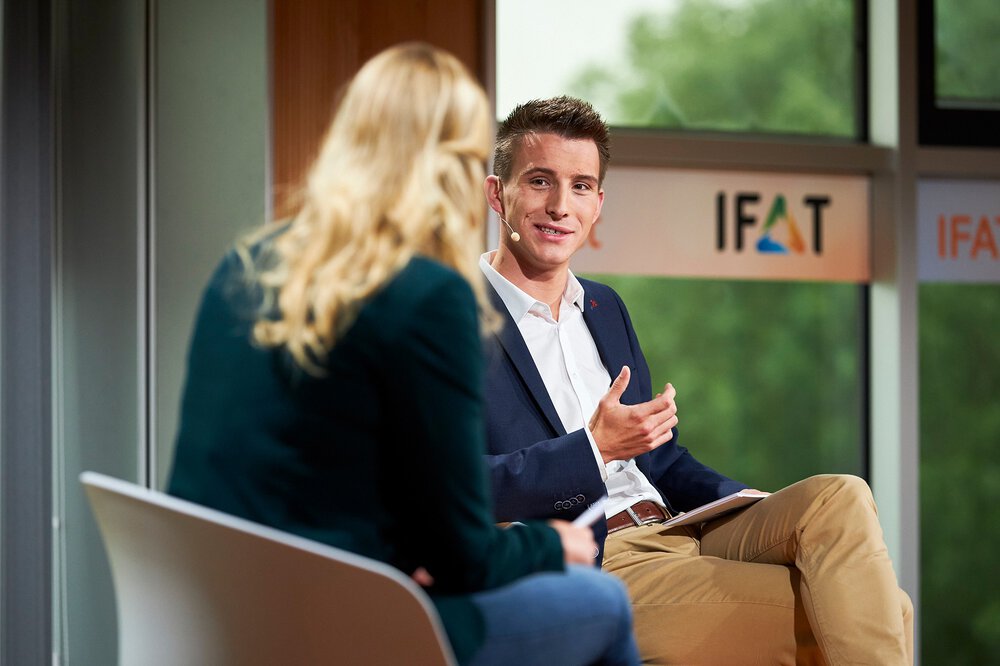IFAT impact Business Summit: Environmental expertise from all over the world—connected digitally
September 11, 2020
- Strong international participation in the digital event
- Key topics: circular economy, artificial intelligence, market insights
- Companies can register as exhibitors for IFAT 2022
Three days of business contacts and knowledge transfer—that was the first completely digital IFAT impact Business Summit held from September 8 to 10, 2020, featuring a wide range of technologies from recycling to water management, virtual 1:1 talks and discussions on ways towards a real circular economy.
“The COVID-19 pandemic is forcing us all to explore new horizons—we have realized the first digital IFAT impact Business Summit,” explains Stefan Rummel, Managing Director of Messe München. The three days of the event were packed with B2B networking and knowledge transfer for the international environmental industry. “In 2021, we want to offer digital formats again. And then there are the preparations for IFAT 2022 that have just begun. Companies can now register as exhibitors.”
Digital interaction on many levels
The digital summit was based on the IFAT exhibitor portal with more than 3,000 listed companies and their products and solutions. During the event, 154 Product Presentations took place and more than 1,400 one-on-one meetings could be booked. The parallel conference program featured 20 sessions and around 70 speakers. A large part of this was realized by IFAT's partners and the IFAT spin-offs from China, India and Africa. Around 2.100 participants from 104 countries used the summit’s offer.
Yogurt cups, African insights, and artificial intelligence
Key topic was how to achieve a circular economy—just as in the Solution Tour “From a yogurt cup to a new recycled product.” The experts identified three top measures: making products more recyclable, raising awareness among end-users for better pre-sorting, and setting quotas by (EU) policy makers so that more recycled material can be incorporated into new plastic products. “Plastics are necessary for our lives. The only question is how we deal with them,” said Michael Perl from SeSoTec GmbH.
There were also numerous insights into international markets, including Africa: “Africa is not suffering from water shortages,” said Sylvain Usher, Managing Director of the African Water Association (AfWA). “The problem is that the water does not reach the consumer because of many leaks or illegal discharges. The fight against water losses is therefore one of the central concerns of African water management.”
Also interesting were the statements about artificial intelligence in the environmental sector: “Artificial intelligence in the greentech sector has the most direct and strongest influence on the management of climate change and the circular economy,” said Dr. Philipp Gerbert, Director at appliedAI, Germany's leading initiative for artificial intelligence (AI). However, AI must first eliminate its own CO2 footprint through emissions from the power consumption of the data centers. Prof. Dr. Ralf Boris Wehrspohn, Executive Board Member of the Fraunhofer-Gesellschaft, pointed out the many potential applications in the water industry, be it online monitoring of drinking water, more economical and resilient wastewater treatment plants or sustainable water management in cities.
The contents from the conference will soon be available on the IFAT website.
Downloads
89433
Belonging images




- PR Manager



